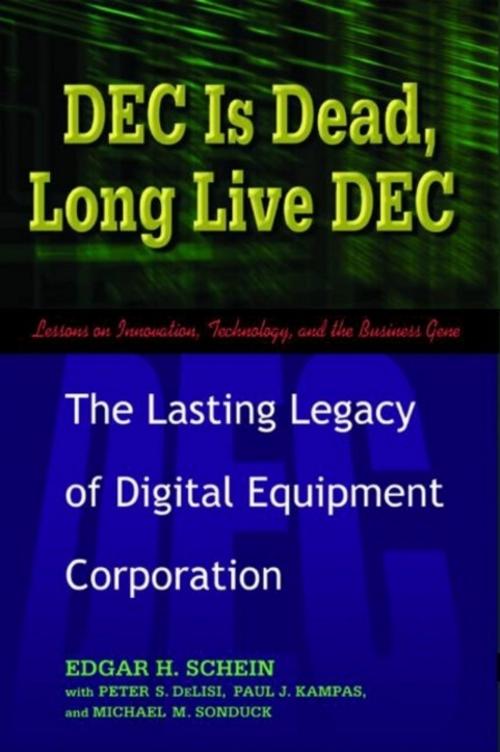DEC Is Dead, Long Live DEC
The Lasting Legacy of Digital Equipment Corporation
Business & Finance, Business Reference, Corporate History, Human Resources & Personnel Management, Organizational Behavior| Author: | Edgar Schein, Paul Kampas | ISBN: | 9781605093024 |
| Publisher: | Berrett-Koehler Publishers | Publication: | August 9, 2004 |
| Imprint: | Berrett-Koehler Publishers | Language: | English |
| Author: | Edgar Schein, Paul Kampas |
| ISBN: | 9781605093024 |
| Publisher: | Berrett-Koehler Publishers |
| Publication: | August 9, 2004 |
| Imprint: | Berrett-Koehler Publishers |
| Language: | English |
Edgar Schein is one of the founders of the organization development field, a widely respected scholar and a bestselling author • Shows how the unique culture of DEC was responsible both for its early rise and for its ultimate downfall-a real-life classical tragedy • Schein was a high-level consultant to DEC throughout its history, with unparalleled access to the company's story as it unfolded over the course of four decades DEC Is Dead, Long Live DEC tells the 40-year story of the creation, demise, and enduring legacy of one of the pioneering companies of the computer age. Digital Equipment Corporation created the minicomputer, networking, the concept of distributed computing, speech recognition, and other major innovations. It was the number two computer maker behind IBM. Yet it ultimately failed as a business and was sold to Compaq Corporation. What happened? Edgar Schein consulted to DEC throughout its history and so had unparalleled access to all the major players, and an inside view of all the major events. He shows how the unique organizational culture established by DEC's founder, Ken Olsen, gave the company important competitive advantages in its early years, but later became a hindrance and ultimately led to the company's downfall. Schein, Kampas, DeLisi, and Sonduck explain in detail how a particular culture can become so embedded that an organization is unable to adapt to changing circumstances even though it sees the need very clearly. The essential elements of DEC's culture are still visible in many other organizations today, and most former employees are so positive about their days at DEC that they attempt to reproduce its culture in their current work situations. In the era of post-dot.com meltdown, raging debate about companies "built to last" vs. "built to sell," and more entrepreneurial startups than ever, the rise and fall of DEC is the ultimate case study.
Edgar Schein is one of the founders of the organization development field, a widely respected scholar and a bestselling author • Shows how the unique culture of DEC was responsible both for its early rise and for its ultimate downfall-a real-life classical tragedy • Schein was a high-level consultant to DEC throughout its history, with unparalleled access to the company's story as it unfolded over the course of four decades DEC Is Dead, Long Live DEC tells the 40-year story of the creation, demise, and enduring legacy of one of the pioneering companies of the computer age. Digital Equipment Corporation created the minicomputer, networking, the concept of distributed computing, speech recognition, and other major innovations. It was the number two computer maker behind IBM. Yet it ultimately failed as a business and was sold to Compaq Corporation. What happened? Edgar Schein consulted to DEC throughout its history and so had unparalleled access to all the major players, and an inside view of all the major events. He shows how the unique organizational culture established by DEC's founder, Ken Olsen, gave the company important competitive advantages in its early years, but later became a hindrance and ultimately led to the company's downfall. Schein, Kampas, DeLisi, and Sonduck explain in detail how a particular culture can become so embedded that an organization is unable to adapt to changing circumstances even though it sees the need very clearly. The essential elements of DEC's culture are still visible in many other organizations today, and most former employees are so positive about their days at DEC that they attempt to reproduce its culture in their current work situations. In the era of post-dot.com meltdown, raging debate about companies "built to last" vs. "built to sell," and more entrepreneurial startups than ever, the rise and fall of DEC is the ultimate case study.















